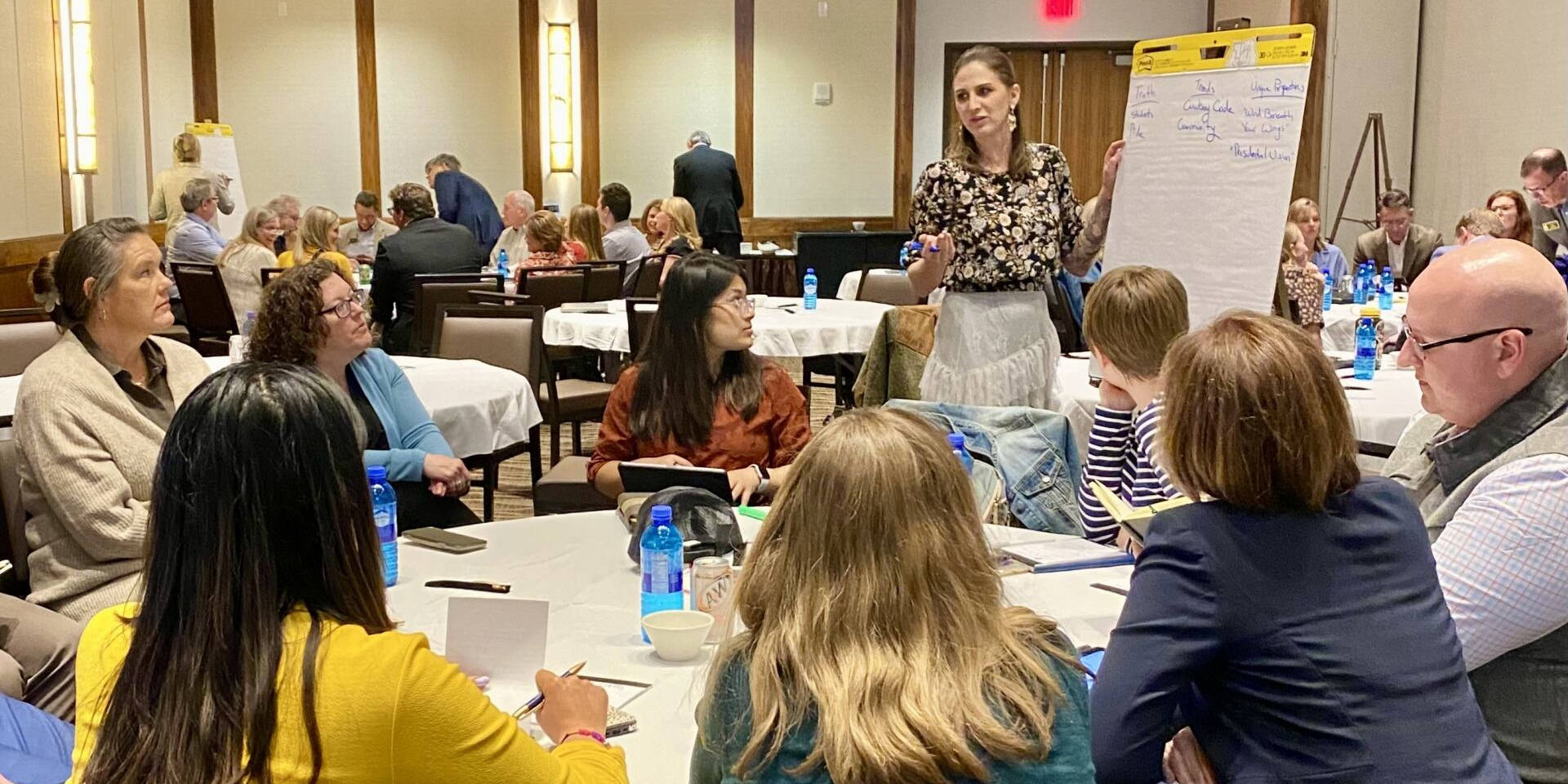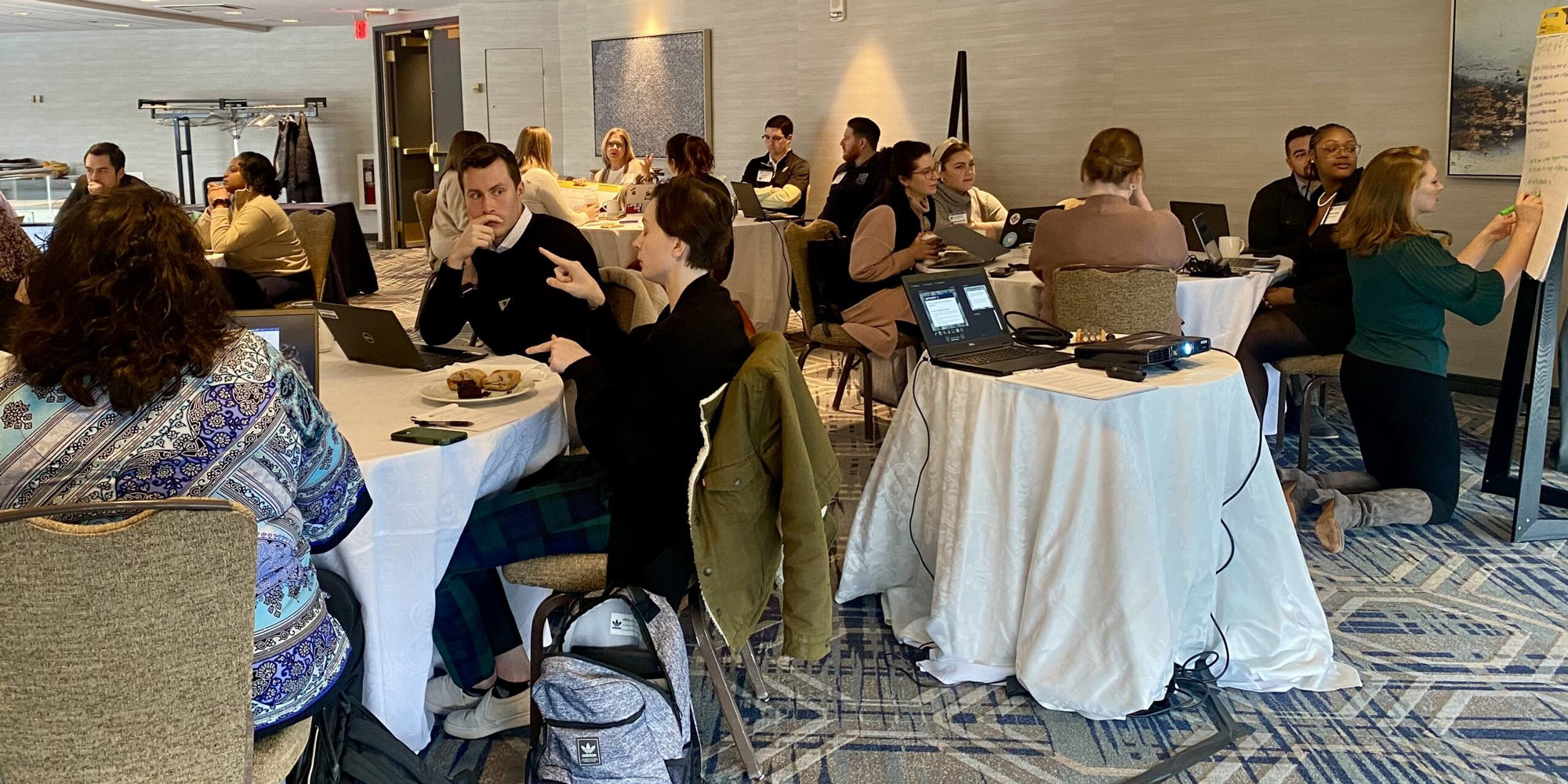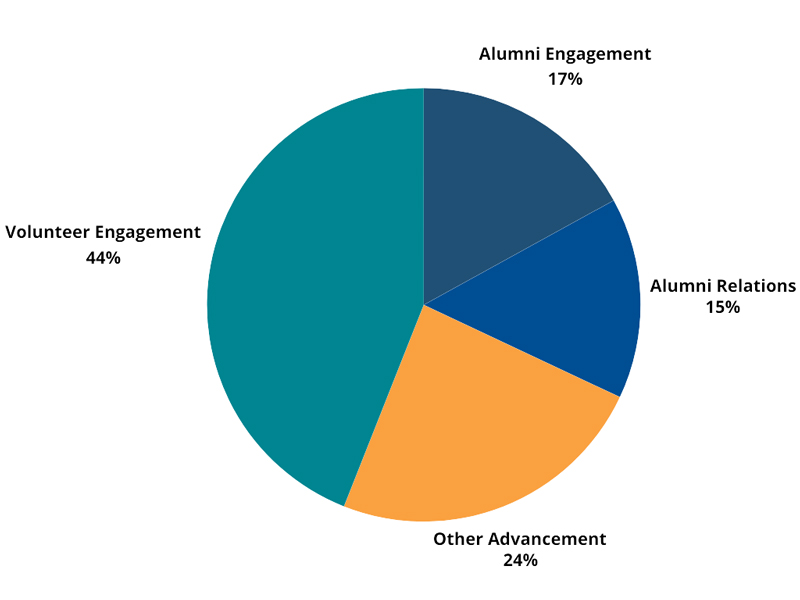Learn how to effectively manage volunteers throughout their full engagement cycles.
What You'll Gain
- Intentional volunteer management through an understanding of the volunteer engagement life cycle.
- Strategies to recruit and train volunteers to be effective ambassadors for your institution.
- Techniques for managing group dynamics and setting expectations for your volunteer board, chapter, or other groups.
- Tactics to evaluate your volunteers, recognize their work, and tell the story of their impact.
Overview
Alumni volunteers are invaluable to institutions, contributing both time and financial support—often giving ten times more over their lifetimes than non-volunteers. While their service is crucial to fostering a culture of philanthropy, managing volunteers presents unique challenges, from aligning their efforts with institutional goals to maintaining a cohesive volunteer experience. This three-day workshop is designed to equip higher education volunteer managers with practical tools and strategies for effectively engaging volunteers across all six phases of the volunteer life cycle. You’ll leave with actionable insights and a tailored approach to elevate volunteer management on their campuses.


Session Descriptions
More details about the timing of the days can be found by clicking Learn More and Register, but session descriptions of the two days are below:
Phase 1: Developing an Intentional Volunteer Management Plan
In this foundational session, we’ll talk about the key ingredients for an intentional volunteer management framework, including the phases of the volunteer engagement cycle, to help you better plan your efforts. We’ll discuss how to work with partners to develop a vision for volunteer engagement that aligns with both the institution’s mission and your volunteers’ passions.
Phase 2: Considerations for Recruiting Volunteers
Building on our first session, we’ll discuss the second phase of the volunteer engagement cycle: recruitment. We’ll explore ways to incorporate your needs in a well-thought-out volunteer recruitment strategy. Additionally, we’ll focus on effective strategies to recruit and vet alumni volunteers for boards, regional chapters, and one-off volunteer opportunities, as well as ways to inspire your volunteers’ commitment over their lifetimes.
Phase 3: Considerations for Onboarding and Training Volunteers
After you’ve successfully enlisted recruits, it’s critical to explore onboarding and ongoing training needs for your various volunteers to ensure that they have an overall positive and meaningful experience. Some of the decisions we’ll explore include how to:
- Prepare volunteers to understand their role and value.
- Equip them with tools and other resources to fulfill their responsibilities.
- Align their role with your institution or unit’s strategic plan.
- Sustain their connection with your institution over a lifetime.
Small Group Discussions: Applying New Content in Your Context
After we’ve reviewed the first three phases of the volunteer engagement cycle, you’ll apply newfound knowledge in your own institution or shop’s context with at least one of our facilitators. You’ll be in groups with others based on the size or type of your volunteer program, and this intentional time is designed to help you network with colleagues and get answers to your questions on recruitment, onboarding, and/or training of volunteers.
Phase 4: Creating a More Inclusive Volunteer Experience and Managing Group Dynamics
In taking the time to understand your volunteers’ motivations and interests , you’ll be better equipped to create a more inclusive volunteer experience. In this session, we’ll cover baseline communication strategies to work across differences, including generational differences, and discuss how to effectively respond when individual interests and group dynamics get in the way of fulfilling your organization’s needs. You’ll practice how to have difficult conversations with volunteers to set you up for success.
Solutions Clinic: Managing Difficult Volunteer Scenarios
There is no single approach or magic bullet for managing a difficult volunteer situation that you or your peers may be experiencing. Often, there are situational nuances with each scenario that force you to be flexible and thoughtful in the moment. Because of this, there is tremendous value in tapping into the collective knowledge of those in the room by learning how others might approach a difficult situation involving a volunteer. Those with experience can share their best recommendations, while those who are newer to the role can share a fresh perspective. This solutions clinic will help us collectively develop strategies for resolving specific challenges you’re facing involving volunteers.
Phase 4: Telling the Story of Volunteer Impact through Data Collection
Knowing what data points to gather from your volunteer engagement programs is a critical step in ensuring that you can convey the value of volunteers and the impact they’ll have on your institution’s philanthropic and strategic goals. In this session, we’ll focus on practical tools to collect and analyze the data and share advice on how to structure your data collection strategy.
Phase 5: Evaluating Your Volunteer Program
Assessing your organizational program and its volunteer involvement practices is critical to ongoing success and change management. In this session, we’ll review suggested steps, tools, and resources to increase the positive impact of your volunteer program on your organization’s mission and volunteers.
Phase 6: Appreciating and Recognizing Volunteers
Volunteers deserve recognition for the time, talent, and/or treasure that they share with your organization, so taking the time to meaningfully call out their contributions is necessary. We’ll invite attendees and facilitators to share some of their most creative ways to show appreciation for the work of their volunteers, even on a tight budget.
Who Should Attend
This workshop is designed for alumni relations professionals, or teams of professionals who manage volunteers for alumni boards, regional chapters, clubs, and other volunteer programs. Though our curriculum will be applicable to managers of all types of volunteers, we will not be diving specifically into any one volunteer group.
How You'll Use This to Move Work Forward
- Volunteer Engagement Professionals - Develop a volunteer management framework unique to your institution's needs.
- Alumni Engagement Professionals - Establish and build relationships with your alumni volunteers through meaningful engagement opportunities.
- Alumni Relations Professionals - Build and sustain a culture of impactful alumni volunteer participation.
- Advancement Leaders - Empower your shop to effectively manage alumni volunteer boards, chapters, and groups.
Bring a team! Register 3 or more people and save more than $1,000! Discounts will be automatically applied at checkout.
Past Attendee Breakdown

Speakers

Sarah Indewey
Psychology Department Manager, Queen’s University

Matt Carcella
Senior Director, Diversity Alumni Programs and U.S. Regional Alumni Engagement, Cornell University

Megan Stevens
Assistant Vice President for Annual Giving and Alumni Engagement, Stevens Institute of Technology
What makes our events different?
Academic Impressions workshops provide the opportunity for quality conversations and relationship-building through both formal and informal networking opportunities in an intimate setting. Our in-depth and hands-on approach to learning provides you with actionable takeaways.
Learn More About the Academic Impressions Workshop Experience ➞
Location
Chicago, IL | Hyatt Regency McCormick Place

Grow Leadership. Maximize Your Budget.
Empower your team with professional development that pays off. Our Workshop Group Packs help you build leadership capacity while saving money. Discounts are automatically applied at checkout.
What Our Attendees Are Saying
“Academic Impressions' Intentional and Strategic Management of Alumni Volunteers workshop is one of the best I've attended. As my team and I work to develop our alumni volunteer program, we found the sessions incredibly insightful. The program was focused, the speakers were knowledgeable and engaging, and the workshop was well-executed.”
“As the person responsible for the overall volunteer program, this workshop helped set the stage for success from the beginning of the volunteer planning process to the recognition of volunteers. I learned just how important it is to prioritize the volunteer experience just like you would in any other aspect of the job.”
Pricing
August 18-20, 2025
Chicago, IL
Starting at:
- Member Price: $2,245/person
- Non-Member Price: $2,495/person
- Team Discount: $2,000/person (for 3 or more)
Questions About the Event?

Rabia Khan Harvey
Senior Learning & Development Manager, Academic Impressions
Rabia is a Senior Learning & Development Manager who coordinates open-enrollment programs and campus partner outreach efforts across multiple functional areas including advancement, academic leadership, and Title IX...Read Full Bio.
Have you attended this event in the past or do you know someone who may be interested? Share it with your network.

